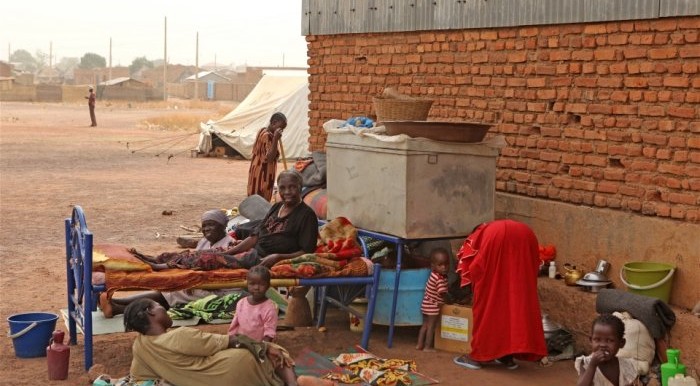More than 8,000 returnees are in urgent need of humanitarian assistance in Bagari Payam of Western Bahr el Ghazal's Wau County, officials say.
The returnees had been displaced to the UN Protection of Civilian Sites (PoC) in Wau during the 2015 to 2017 conflicts. More than 40,000 internally displaced persons sought refuge in the PoC.
However, following the signing of the 2018 revitalized peace agreement in 2018, some displaced people voluntarily returned to their homes.
Speaking to Radio Tamazuj on Wednesday from Bagari, a local chief said the humanitarian situation in the area is worrying as the returnees lack basic needs which include clean drinking water, food, and medical care.
Chief Nicola Wudo Juma said that aside from the lack of basic needs, the returnees who are mostly farmers are discouraged by the presence of pastoralists and their cattle which they say destroy their farms.
“World Food did not reach this place, the civilians are hunger, they don’t have food. Secondly, the issues of water, the civilians are very many but they don’t have water and another issue of a health center, we have a problem accessing health needs,” said Juma. "The sick are being transported using bicycles to Wau Hospital; the civilians need health care and water."
He adds, "The people are not free because of cattle, people want to work in their gardens but the cattle destroy the farms and this is the situation that the civilians are facing here."
A resident of Bagari who identified herself only as Coleta decried the lack of services and presence of cattle.
“Our problem here is that, cattle are badly destroying our farms and their owners are armed making it difficult to question them, if you ask why cattle destroy your garden, they threaten you using a gun and this is what is happening in Bagari,” said Coleta. "The situation is very bad, no medicines, we are surviving by the grace of God and the bad thing is the issue of medicine and food,” she said.
According to Coleta, many people have resorted to charcoal burning as a means of survival.
Anthony Jokondo, a youth representative in the area said pregnant women are the most affected by the lack of health services.
“If there is a sick person or a woman that needs to deliver, to bring her to Wau is very difficult, there is no car to bring her and sometimes she can deliver on the road or may die on the way. Our women are delivery their children traditionally,” he said.
For his part, Wau County Relief and Rehabilitation Coordinator, William Daniel Fusa said the UN World Food Programme will distribute food aid in Bagari from this month to August, according to an agreement they made.
“Now they are in Raga and when they return from Raga, they will go to Bagari. The issue of water, last month, a team working on water projects were there repairing hand pumps and I hope they by now have done some improvements on the water issue,” Fusa said.
He called on new returnees to register with the International Organization for Migration (IOM) to ease aid facilitation.
Wau County's Bagari, Farajalla, Bazia, Biringi, Natabu, Besselia, and Bussere areas were badly affected by the conflict.




